 Last year, audiences watched in disbelief as the South African sign language interpreter for Nelson Mandela’s memorial service earned the nickname “the fake interpreter.” Insulted, but not entirely surprised, the global deaf community used this public example to bring attention to an unfortunately common problem. The agencies which provide interpreters, even for large televised events, aren’t always looking out for the best interest of the communities they serve.
Last year, audiences watched in disbelief as the South African sign language interpreter for Nelson Mandela’s memorial service earned the nickname “the fake interpreter.” Insulted, but not entirely surprised, the global deaf community used this public example to bring attention to an unfortunately common problem. The agencies which provide interpreters, even for large televised events, aren’t always looking out for the best interest of the communities they serve.
Applying to an Interpreting Agency
 When interpreting agencies assign unqualified interpreters to jobs, they are denying equal access– it happens at hospitals, police stations, and court rooms alike. From the very start of our careers, interpreters should aware that these agencies are unethical, and that it is our professional responsibility to ensure access for the deaf is provided.
When interpreting agencies assign unqualified interpreters to jobs, they are denying equal access– it happens at hospitals, police stations, and court rooms alike. From the very start of our careers, interpreters should aware that these agencies are unethical, and that it is our professional responsibility to ensure access for the deaf is provided.
Novice interpreters graduate from their Interpreter Training Program (ITP) eager to begin serving the deaf community. For many, this means moving to a large metropolitan area, a place where they may not be familiar with the community, the neighborhoods, or the job opportunities available. When I first moved to New York City, I just wanted to get right to work! I have learned that professional responsibility starts right here, at this juncture. If you recently relocated or graduated from an ITP program, there are ways to ensure you are working for a reputable agency that cares about the quality of the interpreters that they provide to the deaf community.

Looking for agencies that are Deaf or sign language interpreter owned and operated is a good first step. People who live and work in the deaf community understand the importance of matching a deaf consumer with a skilled qualified interpreter. They can recognize any issues which might arise between interpreters and clients, and advocate for the deaf consumer when needed. Multiple language interpreting agencies are often unfamiliar with deaf specific issues, making them less qualified to mediate these types of cultural misunderstandings.
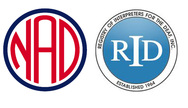 Research agencies to ensure they adhere to RID/NAD standards. The Registry of Interpreters for the Deaf (RID) is a professional organization which strives to provide consistent and ethical sign language interpreters. The National Association of the Deaf (NAD) is a civil rights organization by and for deaf people, representing the interest of deaf and hard of hearing individuals across the United States. Together RID and NAD have developed a Code of Professional Conduct, a set standard practices and expectations for interpreters that protects the rights of deaf consumers. It is crucial that any agency an ASL interpreter applies to is not only familiar with, but in strict adherence of these policies. It shows respect for deaf consumers and a desire to provide the highest quality ethical interpreting services.
Research agencies to ensure they adhere to RID/NAD standards. The Registry of Interpreters for the Deaf (RID) is a professional organization which strives to provide consistent and ethical sign language interpreters. The National Association of the Deaf (NAD) is a civil rights organization by and for deaf people, representing the interest of deaf and hard of hearing individuals across the United States. Together RID and NAD have developed a Code of Professional Conduct, a set standard practices and expectations for interpreters that protects the rights of deaf consumers. It is crucial that any agency an ASL interpreter applies to is not only familiar with, but in strict adherence of these policies. It shows respect for deaf consumers and a desire to provide the highest quality ethical interpreting services.
When applying to an interpreting agency, find out how they treat their employees and pay careful attention to the hiring process. It is important that the agency have an accurate interview and screening process, which will include assessment by a deaf or hearing interpreter to appropriately evaluate each new interpreter’s skill set. A quality interpreting agency will know their interpreter’s strengths and weaknesses, and distribute assignments accordingly.
Seek out agencies that follow community standards and protocol to ensure interpreters are taken care of. Assignment details should provide as much depth as po
ssible to help prepare interpreters for any demands that may arise. An agency which demonstrates concern for its’ interpreters will work within the Demand-Control schema to reduce occupational stressors, allowing interpreters to perform at the highest possible level. Assignment details are so critical for interpreters because we are synthesizing conversations based on a specific situation. If we do not have the correct information, or have an incomplete picture, we will be doing a disservice to the deaf consumer.

One difference between spoken language interpreters and sign language interpreters is team interpreting. When interpreting a verbal language into a physical one, ASL interpreters become prone to both physical and mental fatigue. After one hour of interpreting alone, even the best sign language interpreter will be providing a lower quality of service. ASL interpreters should make sure any agency they apply to regularly provides team interpreting for assignments. Not every situation requires a team of interpreters, but many do and it’s best to look for agencies that are ready to provide interpreters with support in the field.
 Before you sign a contract with any agency, be sure you read it very thoroughly and that you agree to the terms. If you find any questionable items in the contract, bring it back to the agency to discuss how your needs can be met. Look for the following items: a cancellation policy that ensures pay for the interpreter if the assignment is cancelled without 24-48 hours notice; a policy that states payment will be made within 14-45 days of an assignment; and pay that follows the cost of living standards for your area. Whether you live in a city or rural area has a big impact on your income. Learn the standard rates for non-certified and certified ASL interpreters in your city, and seek out an agency that provides all interpreters a fair hourly wage.
Before you sign a contract with any agency, be sure you read it very thoroughly and that you agree to the terms. If you find any questionable items in the contract, bring it back to the agency to discuss how your needs can be met. Look for the following items: a cancellation policy that ensures pay for the interpreter if the assignment is cancelled without 24-48 hours notice; a policy that states payment will be made within 14-45 days of an assignment; and pay that follows the cost of living standards for your area. Whether you live in a city or rural area has a big impact on your income. Learn the standard rates for non-certified and certified ASL interpreters in your city, and seek out an agency that provides all interpreters a fair hourly wage.
When working for an organization that understands the deaf community, and truly cares about the quality of services they provide, interpreters will find they are better supported and able to focus. Look for agencies which emphasize the RID/NAD Code of Professional Conduct and have connections to deaf culture. At the end of the day, the people who suffer most when unqualified interpreters are assigned to jobs are deaf consumers. If an interpreter lacks the skill set to perform a specific task, and the agency does not recognize this, the deaf person is denied access. By partnering with ethical, consumer-focused agencies, sign language interpreters choose to support professionally responsible business practices. Beyond that, they choose to support equal access– and that’s what this job is all about!
_____
If you are seeking a professional ASL interpreting mentor, my services are available. It is critical for interpreters to continuously develop their professional skills at every step of their career. LC Interpreting Services is deeply involved with the deaf community, focused on deaf consumers, and passionate about providing equal access in all situations. If you are looking for career guidance and information about reputable agencies, LCIS would be happy to help!
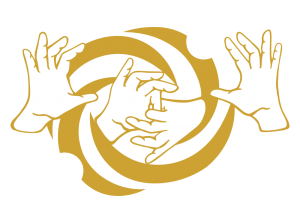



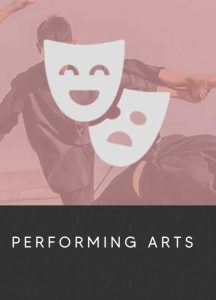

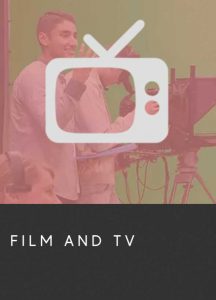





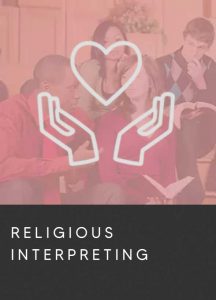
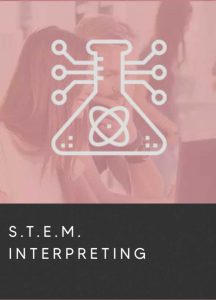
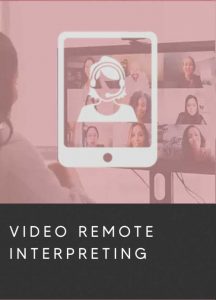
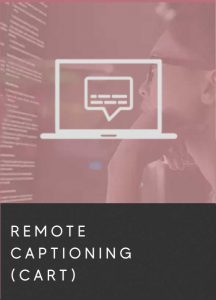

 There are many students heading into the fall semester at colleges and universities across the country who remain uncertain about their career path. Planning for the future can be overwhelming, but take it from me: entering a profession that you love is a truly rewarding experience.
There are many students heading into the fall semester at colleges and universities across the country who remain uncertain about their career path. Planning for the future can be overwhelming, but take it from me: entering a profession that you love is a truly rewarding experience. Motivated sign language interpreters love the way language can be used to form meaningful connections. Strong linguistic skills are necessary for facilitating nuanced (and sometimes critical) conversations between deaf and hearing parties. Sign language interpreters need to take the time to understand each side, their motives, and their communication style so that they can ensure the messages are being faithfully conveyed. People who wish to be ASL interpreters are those who enjoy meeting people from all walks of life and hearing about their experiences.
Motivated sign language interpreters love the way language can be used to form meaningful connections. Strong linguistic skills are necessary for facilitating nuanced (and sometimes critical) conversations between deaf and hearing parties. Sign language interpreters need to take the time to understand each side, their motives, and their communication style so that they can ensure the messages are being faithfully conveyed. People who wish to be ASL interpreters are those who enjoy meeting people from all walks of life and hearing about their experiences. Not everyone is fluent in ASL when they decide to become an interpreter, and that’s ok. For those individuals, the first step to becoming an interpreter is working on sign language skills in a formal environment— a
Not everyone is fluent in ASL when they decide to become an interpreter, and that’s ok. For those individuals, the first step to becoming an interpreter is working on sign language skills in a formal environment— a 
 Every state has a different system as far as licensure and certification requirements, so be sure to check with your state commission for the Deaf and Hard of Hearing. After your ITP has been completed, the next step is the National Interpreter Certification (NIC). The NIC is a two part examination given by the
Every state has a different system as far as licensure and certification requirements, so be sure to check with your state commission for the Deaf and Hard of Hearing. After your ITP has been completed, the next step is the National Interpreter Certification (NIC). The NIC is a two part examination given by the 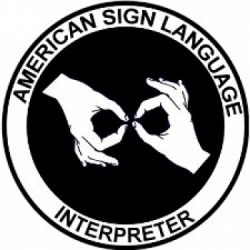 In this field, education does not end with a degree! The best ASL interpreters are those who actively engage in
In this field, education does not end with a degree! The best ASL interpreters are those who actively engage in  Lately it seems like American Sign Language is everywhere! It’s been making appearances at musical performances and sporting events. It can be seen in news stories, comic books, movies, and TV shows. Pop stars are using it, sports mascots are using it, even
Lately it seems like American Sign Language is everywhere! It’s been making appearances at musical performances and sporting events. It can be seen in news stories, comic books, movies, and TV shows. Pop stars are using it, sports mascots are using it, even  Knowing how to sign opens up a whole new world — a place where words exist in 3-dimensions. ASL is a beautiful visual communication form which relies on body language and facial cues. It is emotional and highly expressive. If you’re a hearing person who wants to become a better listener, learning sign language can actually help! Sign language requires eye contact and attention to detail, which makes ASL users very perceptive to subtle changes in mood.
Knowing how to sign opens up a whole new world — a place where words exist in 3-dimensions. ASL is a beautiful visual communication form which relies on body language and facial cues. It is emotional and highly expressive. If you’re a hearing person who wants to become a better listener, learning sign language can actually help! Sign language requires eye contact and attention to detail, which makes ASL users very perceptive to subtle changes in mood. Besides breaking through the barriers between deaf and hearing culture, there are a number of other benefits to learning ASL. It makes you bilingual, which looks great on your resume. It allows you to communicate with people across a noisy room. Sometimes, such as the
Besides breaking through the barriers between deaf and hearing culture, there are a number of other benefits to learning ASL. It makes you bilingual, which looks great on your resume. It allows you to communicate with people across a noisy room. Sometimes, such as the Hearing individuals who are interested in sign language have nothing to lose and everything to gain! ASL is fun to learn, and as American as apple pie. Learning a new language can be challenging, but moving outside our comfort zones encourages personal growth and development. Why limit your possibilities? You never know, maybe the romantic partner of your dreams is deaf. Not knowing sign language could prevent you from ever making that connection.
Hearing individuals who are interested in sign language have nothing to lose and everything to gain! ASL is fun to learn, and as American as apple pie. Learning a new language can be challenging, but moving outside our comfort zones encourages personal growth and development. Why limit your possibilities? You never know, maybe the romantic partner of your dreams is deaf. Not knowing sign language could prevent you from ever making that connection. In addition to this brief list, there are hundreds of other sign language resources available online at very affordable prices. Of course, it is always best to learn one-on-one when possible. Be sure to look for classes in your community, or connect with an ASL instructor for a few structured lessons. Start today and before you know it, you will find yourself immersed in the fascinating culture of Deaf America!
In addition to this brief list, there are hundreds of other sign language resources available online at very affordable prices. Of course, it is always best to learn one-on-one when possible. Be sure to look for classes in your community, or connect with an ASL instructor for a few structured lessons. Start today and before you know it, you will find yourself immersed in the fascinating culture of Deaf America!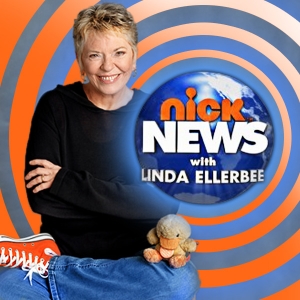 The pediatrician just informed you that your child is profoundly deaf.
The pediatrician just informed you that your child is profoundly deaf.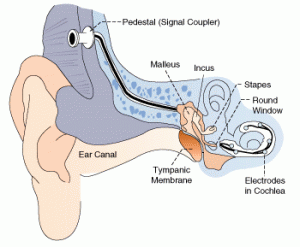 ome families choose to assimilate their child to a hearing lifestyle by implanting a device called a cochlear implant into the skull, which stimulates the auditory nerve and allow the brain to “hear.” Sammy is a CI recipient from a hearing family who jokingly refers to herself as “part robot.” She was not born deaf, but her hearing deteriorated throughout childhood and, at 12 years old, she made the choice to have CI surgery. According to Sammy, her parents presented the pros and cons, and she strongly feels a CI was the right choice for her. She attends school with all other hearing students and plays on a basketball team, insisting she doesn’t need to know ASL because she can hear. Cici also comes from a hearing family, she lost her hearing as a baby. Her parents elected to send her to a school for deaf children that focuses on teaching English and oral communication, so she never learned any ASL. At 5 years old she received her CI. “It was hard to learn to speak,” she says, but she feels very grateful that she did because it allows her to communicate with her family and non-deaf friends. Cici is a ballet and tap dancer who feels that deafness is a disability that her CI and hearing aid help her overcome.
ome families choose to assimilate their child to a hearing lifestyle by implanting a device called a cochlear implant into the skull, which stimulates the auditory nerve and allow the brain to “hear.” Sammy is a CI recipient from a hearing family who jokingly refers to herself as “part robot.” She was not born deaf, but her hearing deteriorated throughout childhood and, at 12 years old, she made the choice to have CI surgery. According to Sammy, her parents presented the pros and cons, and she strongly feels a CI was the right choice for her. She attends school with all other hearing students and plays on a basketball team, insisting she doesn’t need to know ASL because she can hear. Cici also comes from a hearing family, she lost her hearing as a baby. Her parents elected to send her to a school for deaf children that focuses on teaching English and oral communication, so she never learned any ASL. At 5 years old she received her CI. “It was hard to learn to speak,” she says, but she feels very grateful that she did because it allows her to communicate with her family and non-deaf friends. Cici is a ballet and tap dancer who feels that deafness is a disability that her CI and hearing aid help her overcome. Last year, audiences watched in disbelief as the South African sign language interpreter for Nelson Mandela’s memorial service earned the nickname “the fake interpreter.” Insulted, but not entirely surprised, the global deaf community used this public example to bring attention to an unfortunately common problem. The agencies which provide interpreters, even for large televised events, aren’t always looking out for the best interest of the communities they serve.
Last year, audiences watched in disbelief as the South African sign language interpreter for Nelson Mandela’s memorial service earned the nickname “the fake interpreter.” Insulted, but not entirely surprised, the global deaf community used this public example to bring attention to an unfortunately common problem. The agencies which provide interpreters, even for large televised events, aren’t always looking out for the best interest of the communities they serve. When interpreting agencies assign unqualified interpreters to jobs, they are denying equal access– it happens at hospitals, police stations, and court rooms alike. From the very start of our careers, interpreters should aware that these agencies are unethical, and that it is our professional responsibility to ensure access for the deaf is provided.
When interpreting agencies assign unqualified interpreters to jobs, they are denying equal access– it happens at hospitals, police stations, and court rooms alike. From the very start of our careers, interpreters should aware that these agencies are unethical, and that it is our professional responsibility to ensure access for the deaf is provided.
 Research agencies to ensure they adhere to RID/NAD standards. The Registry of Interpreters for the Deaf (RID) is a professional organization which strives to provide consistent and ethical sign language interpreters. The National Association of the Deaf (NAD) is a civil rights organization by and for deaf people, representing the interest of deaf and hard of hearing individuals across the United States. Together RID and NAD have developed a
Research agencies to ensure they adhere to RID/NAD standards. The Registry of Interpreters for the Deaf (RID) is a professional organization which strives to provide consistent and ethical sign language interpreters. The National Association of the Deaf (NAD) is a civil rights organization by and for deaf people, representing the interest of deaf and hard of hearing individuals across the United States. Together RID and NAD have developed a 
 Before you sign a contract with any agency, be sure you read it very thoroughly and that you agree to the terms. If you find any questionable items in the contract, bring it back to the agency to discuss how your needs can be met. Look for the following items: a cancellation policy that ensures pay for the interpreter if the assignment is cancelled without 24-48 hours notice; a policy that states payment will be made within 14-45 days of an assignment; and pay that follows the cost of living standards for your area. Whether you live in a city or rural area has a big impact on your income. Learn the standard rates for non-certified and certified ASL interpreters in your city, and seek out an agency that provides all interpreters a fair hourly wage.
Before you sign a contract with any agency, be sure you read it very thoroughly and that you agree to the terms. If you find any questionable items in the contract, bring it back to the agency to discuss how your needs can be met. Look for the following items: a cancellation policy that ensures pay for the interpreter if the assignment is cancelled without 24-48 hours notice; a policy that states payment will be made within 14-45 days of an assignment; and pay that follows the cost of living standards for your area. Whether you live in a city or rural area has a big impact on your income. Learn the standard rates for non-certified and certified ASL interpreters in your city, and seek out an agency that provides all interpreters a fair hourly wage.





